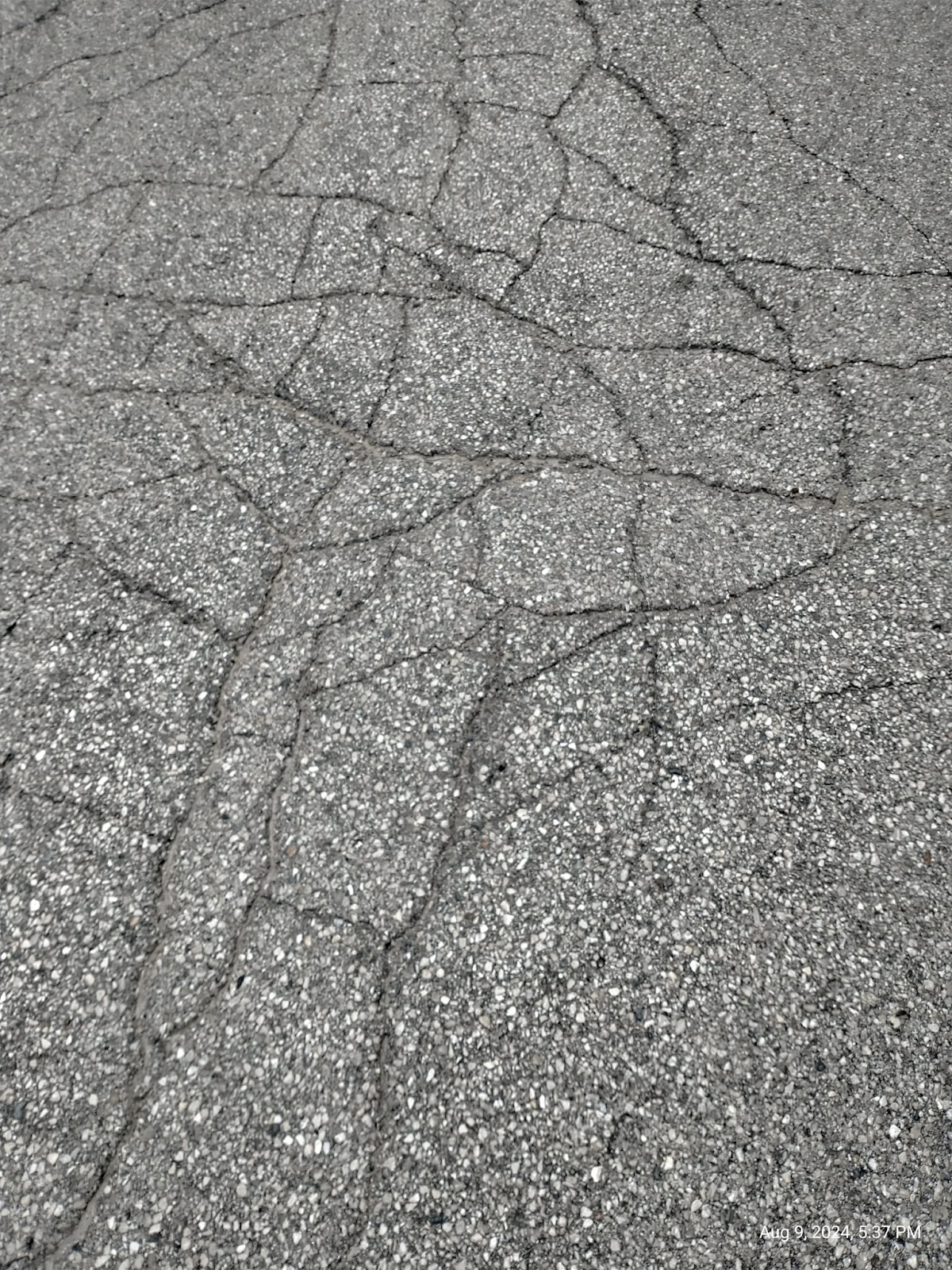Aug. 9th Special BOC meeting for GT County Road Commission mileage renewal request
On Aug. 9th I attended the Special BOC meeting to discuss the GT County Road mileage renewal request. After which I drove around District #1 and took 82 pictures of our crumbling roads. You can see all of the photos on my Facebook page. Crumbling Roads photo album
These are 82 photos I took yesterday after the BOC Special meeting. I didn't have time to drive every residential road in the district. Residents know all too well these crumbling roads and have asked me to focus on this, so I am. Please send me a photo of the crumbing road in front of your house if its not here. Time to make some noise people!
Jim Horn of Traverse Talks Podcast wrote this meeting transcript:
In a recent Grand Traverse County Board of Commissioners meeting, the discussion on the road millage proposal drew significant attention from township officials and residents, many of whom expressed deep concerns about the allocation of funds and the deteriorating condition of local roads. Dean Bott, the treasurer of Mayfield Township, was among the first to speak, highlighting the township's substantial financial contributions to local road projects. Bott detailed how Mayfield Township had covered 70% of the cost of reconstructing what he described as "the worst mile of road in the county" and is currently funding 100% of the expenses for a gravel road project, totaling $120,000. Despite these efforts, Bott expressed frustration that nearly half of the local roads in the county are still classified as being in poor condition, and he voiced concerns about the road commission's focus, which he perceives as being too heavily concentrated on maintaining primary roads.
Bott further elaborated on his concerns by referencing data included in the meeting packet, which indicated that 48% of local roads are in poor condition. He questioned the effectiveness of the current road commission plan, which, according to him, prioritizes primary roads that already receive federal and state funding. Bott pointed out a specific instance where a primary road in Mayfield Township, which he believed was not in dire need of repair, received a new layer of asphalt. This decision, he argued, exemplifies the road commission's misallocation of resources, leaving local roads in worsening conditions. Bott concluded his remarks by urging the board to ensure that if the millage is approved, more of the funds are directed towards improving local roads, which are vital for the community.
Brian McManus, a resident of Kingsley, Michigan, followed with a detailed analysis of the county’s road funding situation. McManus presented statistics showing that Grand Traverse County has 1,020 miles of roads, 760 of which are local roads in fair to poor condition, while 260 miles of primary roads are in decent to good condition. He explained that the road commission spends approximately $10 million annually on road construction, with $5 million coming from the road millage and another $5 million from the Michigan Transportation Fund (MTF). However, McManus highlighted a significant funding gap, estimating that even with the proposed increase in the millage, the county would still be short by $2.5 to $3.5 million each year, a situation that will likely worsen due to inflation and a lack of contractor competition.
McManus warned that without additional funding, local roads, which are already in poor condition, would suffer further deterioration. He noted that the current funding shortfall could force the county to convert some paved roads back to gravel, a measure that would drastically reduce the quality of life for residents. McManus also proposed that the board consider another millage in the future, suggesting a smaller millage of perhaps half or three-quarters of a mill that could be used as matching funds for townships to invest in their own road improvements. This approach, he argued, would help distribute the financial burden more evenly and ensure that local roads receive the attention they need.
Al Howard, another resident from Kingsley, echoed McManus's concerns, emphasizing the neglect of secondary and local roads over the years. Howard criticized the road commission's strategy, stating that the emphasis on primary roads has left secondary roads as "orphans," receiving little to no maintenance. He recounted the history of Heron Road in his township, which had to undergo a complete rebuild last year at a cost of over $400,000 due to decades of neglect. Howard argued that the road commission’s failure to maintain this and other secondary roads has led to unnecessary expenses and significant inconvenience for residents. He also pointed out that some primary roads, such as Hilltop Road, received extensive repairs despite carrying less traffic than nearby secondary roads, questioning the commission’s decision-making process.
Beth Frenn, the East Bay Township Supervisor, provided a different perspective, supporting the continuation of the road millage despite acknowledging the concerns raised by other residents. Frenn stated that from a qualitative standpoint, the road system in Grand Traverse County has improved since the inception of the millage. As a township supervisor heavily involved in road projects with the road commission, she argued that the issues with road funding and maintenance would not be resolved by reducing the commission's funding. Instead, Frenn advocated for the continuation of the millage to support ongoing and future road projects, emphasizing the need for sustained investment to prevent further deterioration of the county's roads.
Linda Maginity from Blair Township raised concerns about the transparency and accountability of the road commission. She pointed out that the road commission’s last available budget was from the 2021-2022 fiscal year, and despite assurances that the 2023 audit would be completed soon, it had yet to be finalized. Maginity questioned how the board could make an informed decision on increasing the mileage without knowing how the road commission had spent its funds in the previous year. She also cited specific budgetary discrepancies, such as a $900,000 underspend on snow removal in 2022, and demanded to know where these savings were reallocated. Maginity suggested that before approving any millage increase, the board should first ensure that the road commission's finances are transparent and properly audited.
The board then engaged in a robust discussion on the proposed millage, with several commissioners expressing differing views on the best approach to take. Commissioner Henschel argued for a more substantial increase in the millage, proposing that the board consider asking voters for three mills instead of just one. He reasoned that the current proposal, while necessary, would only slow the decline of the county’s roads rather than improve them. Henschel emphasized that proper infrastructure maintenance is a core function of government, and without adequate funding, the county’s roads would continue to deteriorate, ultimately costing more in the long run. However, his proposal for a higher mileage did not gain sufficient support from other commissioners.
Commissioner Andrews echoed some of Henschel's concerns but expressed reluctance to approve an increased millage without first building more trust with the public. He acknowledged the improvements made by the current road commission leadership but stressed that these changes were still recent and needed more time to be fully implemented and recognized by the public. Andrews suggested that instead of increasing the millage now, the board could revisit the idea in a couple of years after giving the road commission more time to prove its effectiveness. He also expressed concerns about the legal implications of the millage language, particularly regarding the allocation of funds between local and primary roads, and called for a more thorough review of how the funds would be distributed.
In conclusion, the board approved the one-mill proposal, but the discussion underscored the challenges facing the county’s road system and the need for careful planning and transparent governance. The meeting highlighted the differing opinions among township officials, residents, and commissioners on the best way to address the road funding shortfall, with some advocating for immediate and substantial increases in funding, while others urged caution and a focus on building public trust. The board's decision to proceed with the one-mill proposal reflects a compromise, balancing the need for continued investment in the county’s roads with the recognition that more substantial changes may be necessary in the future.
--
Jim Horn



Comments
Post a Comment